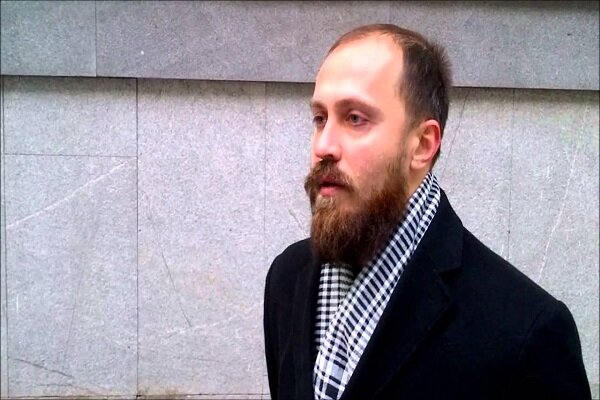Moscow interested in strong partnership with Iran: Russian analyst

TEHRAN - Leonid Savin, a Russian political analyst, is of the opinion that Moscow is keen to establish a strong partnership with Iran.
"Despite Western position Russia is interested in strong partnership with Iran and development of common projects," Savin tells the Tehran Times.
"The last visit of the Iranian delegation to Moscow indicated that we are strengthening our cooperation,” he argues.
“Iran is looking to join Eurasian Economic Union that seems a very important move forward. Our interaction in Syria also was a good bridge for trust-building,” according to Savin.
The following is the text of the interview:
Q: How do you assess the new American administration’s policy towards Iran? Washington asks Iran to take the first step to revitalize the JCPOA while it was the U.S. under the Trump presidency that withdrew from the deal in 2018. What is your comment?
A: In my opinion, there is no big change between old and new administrations. Both (Democrats and Republicans) are interested to pressure Iran. They have a consensus on the necessity to dismantle the "regime of Ayatollahs" (a special term used for high authorities of the Islamic Republic of Iran). Only approaches are different. Let’s remember how American Democrats promoted and supported the "green revolution" in Iran in the whole framework of color revolutions organized in many regions. The case of Trump is interesting because he made many issues more complicated (also for China, Russia, European partners, Latin American countries). I agree with the Supreme Leader of Iran that the U.S. must lift all sanctions and bans first because they imposed them first. Under new conditions, it will be not easy because any new steps by Iran to develop its nuclear program is described in the U.S. and Israel as serious violations. It gives American decision-makers and political lobby groups a large base for interpretations that step by step modified into a pretext for hostile actions against Iran.
Q: What is the role of Russia in reviving the JCPOA? Could Moscow play the role of an influential mediator?
A: Of course, Moscow is interested in a balanced approach and special conditions for Iran in a context that both (Iran and Russia) are suffering from Western sanctions. On the other hand, Russia has some limits because we face confrontation with both the EU and the U.S. at the moment. This experience also presents Russia as a reliable negotiator for Iran. Despite the Western position, Russia is interested in a strong partnership with Iran and the development of common projects. The last visit of the Iranian delegation to Moscow indicated that we are strengthening our cooperation. Iran is looking to join the Eurasian Economic Union that seems very important to move forward. Our interaction in Syria also was a good bridge for trust-building.
Q: Do you think that the initiative of nuclear-weapon-free zones (NWFZ) in West Asia is realistic due to Israel's refusal of any cooperation?
A: No. I’m sure that Tel-Aviv will continue its own irresponsible policy in the region. Also, after the Abraham Accords, the perception of regional security, unity between Arab and Muslim countries was broken. Israel still following Begin’s doctrine of chronic inferiority. Due to repressions against Palestinians and land grabbing, Israelis feels vulnerable from the possible conventional massive strike, so they want to have robust elements for strategic deterrence.
Q: Given the New Start that is signed by the U.S. and Russia, how do you evaluate the new U.S. administration’s policies when it comes to Russia?
A: They have no choice. Actually, both sides need this new agreement. But it was signed under Russian conditions so we see it like our victory. Recently I discussed this process with colleagues from governmental institutions who focused on this problem. The Russian position is that the analysis and preparation of new agreements will take one or two years. It is a realistic scenario.
Q: Do you expect a fundamental shift in U.S. policies during the Biden presidency?
A: It is not possible. Joe Biden is not an isolationist or game-changer. He will try to restore American leadership and ties with partners abroad, especially for NATO countries. But democratic agenda, in general, is the same as 10 years ago - it is about interventions, from promoting human rights (that is a good umbrella for interference in domestic affairs of any country, but always under double standards, just to mention how the U.S. reacted to the uprising in Bahrain 10 years ago) to direct attacks if possible. Libya, Syria, Afghanistan, and Iraq are the most concrete examples. But the world has changed too and we have emerging China more actively confronting the U.S. hegemony. Russia is also more powerful than before. The most important is understanding the true nature of the Western policy.
Leave a Comment